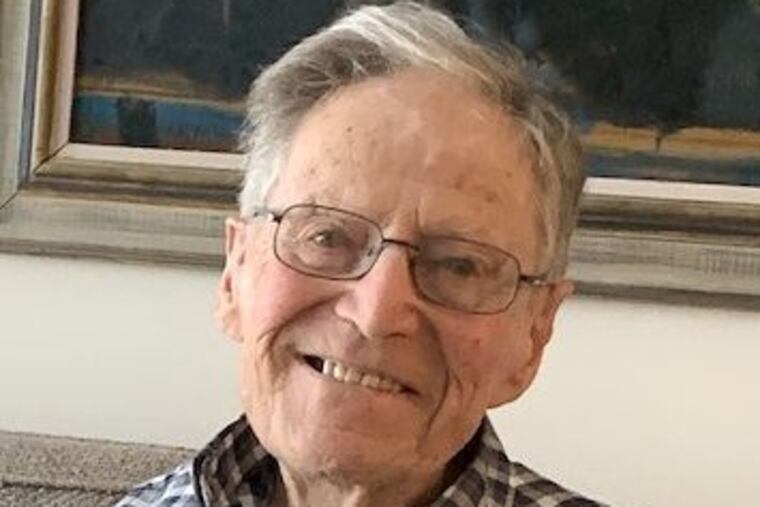Richard Passman, 94, was a pioneer in the aerospace industry
Mr. Passman, who lived in Broomall early in his career, was at the forefront of countless innovative projects in the U.S. space program.

- Richard Passman
- 94 years old
- Worked in West Philly
- Helped build plane that broke the sound barrier
He was an author and an Eagles fan, and a pitcher on a Navy baseball team, and helped build the plane that broke the sound barrier.
As a pioneer in the aerospace industry, Richard Passman was at the forefront of innovative projects. They included the Corona, the first U.S. spy satellite; the manned orbiting laboratory; the Nimbus weather satellite; and the SNAP-27 power system for Apollo missions to the moon.
“It powered all the instruments on the moon,” said his son Bill. “It’s still powering experiments probably on the moon that were left there.
“I was always very proud of him," he said. "I was born almost right after they moved to Philly, so my first 17 years were in Broomall. He had season tickets to the Eagles, so I thought everybody had VIP parking at the GE Reentry Systems building on Chestnut Street and you could walk to the games [at Franklin Field] from a block or two away.”
Mr. Passman, 94, died Wednesday, April 1, at Holy Cross Hospital in Silver Spring, Md., of complications from the coronavirus.
A graduate of the University of Michigan, Mr. Passman, known as “Dick,” joined General Electric Co. in 1957 as an engineer and senior manager, first in West Philadelphia and later at the Missile and Space Division in Valley Forge. Prior to that, he was chief aerodynamicist at Bell Aircraft, working on the X-1 craft that broke the sound barrier in 1947 and the X-2, which broke speed and altitude records at the time.
He later moved to Bethesda, Md., where he worked for the Department of Energy and for Grumman, an aerospace and defense company. After he retired, he enjoyed volunteering at the Smithsonian Air and Space Museum in Washington. He co-wrote a book on the X-15 airplane.
During World War II, Mr. Passman was in Navy pilot training and worked as an aeronautical engineer. He also was a pitcher on the Navy baseball team in his spare time, and into his 90s could remember the names of future professional players he competed against, his son said.
The entire family celebrated the 70th wedding anniversary of Mr. Passman and his wife, the former Minna Hocky, last June 19 in Boston.
In addition to his wife and son, Mr. Passman is survived by sons Henry and Don; 13 grandchildren; and eight great-grandchildren.
— Joe Juliano